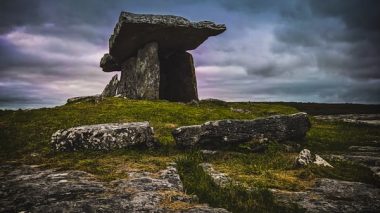History
| Brief overview of the subject:
The study of history is about exploring human experience over time and how that experience has shaped the world we live in today. By asking questions of available evidence, students of history can make rational, informed judgements about human actions in the past and examine why people were motivated to act as they did and the effects of these actions. Studying history develops our historical consciousness, enabling us to orient ourselves in time and to place our experiences in a broader framework of human experience. Being historically conscious transforms the way that we perceive the world and our place in it, and informs how we see the future development of the world. Having a ‘big picture’ of the past helps to develop our historical consciousness. It allows us to see major patterns of change and gives us a framework to understand and put into context the knowledge that we gain about the actions of people that came before us. Investigating evidence to identify moments or patterns of change in the human experience, and to make judgements on the significance of such change, is the key practice of the historian. This study of change relates to the fullness of human experience over time, from the initial emergence of humans to the more recent past. The study of the past allows us to examine the impact of human actions in a wide variety of dimensions, including politics, government, law, society, economics, culture, beliefs and ideas. When we learn about the past, it is important also that we understand the nature of history as a discipline that allows us to make sense of what has happened in our world over time. This involves understanding such concepts as: continuity and change; time and space; how evidence allows us to make judgements about the past and how such judgements may need to be changed if new evidence emerges; awareness of the usefulness and limitations of different forms of evidence and the importance of being objective and fair when investigating the actions of people in the past, and taking care not to let opinions or prejudices affect our judgements; how human actions in the past have different levels of significance; that we see people in the past and their actions in the context of the time in which they lived. Understanding the actions of people in the past and understanding how we come to know about these actions helps us to develop positive values about history. These include a respect for truth and evidence, a commitment to being open to seeing the past from different perspectives and a Junior Cycle History Rationale 5 regard for the integrity of the past. This way of seeing the world deepens our understanding of the relationship between past and current events and the forces that drive change; helps us to appreciate how diverse values, beliefs and traditions have contributed to the culture in which we live; and enables us to value our local, national and international heritage. The ability to construct and communicate coherent, logical arguments on matters of historical significance, and in so doing utilise skills such as thinking critically, working collaboratively and utilising digital media effectively, is also enhanced by the study of history. Studying history helps us also to develop a historical sensibility that leads to an appreciation of the cultural achievements and accomplishments of previous generations, and to derive pleasure and enjoyment from learning about the richness and diversity of human experience in the past, and how this has impacted on and shaped our own identity and experience of the world.
|
| Main areas of study:
First Year
Second Year
Third Year
|
| Examination information:
Layout of Exam Paper at Higher and Ordinary Level TBC. State Examination Commission due to release sample papers in December 2020 Time Allocation: 200 Hours Percentages given to each section including any coursework / fieldtrips etc : 90% Exam and 10% Assessment Task based on Classroom Based Assessment 2. |
| Link to syllabus : Junior Cycle History Specification. |
| Department Members:
Ms. Shulagh Colleran Mr. Alan Deegan Ms. Olwin Kelly |
| Textbooks for Current cohort for Relevant Year groups:
Making History Textbook Making History Skills Book |
| Other required material:
Devise to access Microsoft Teams |

